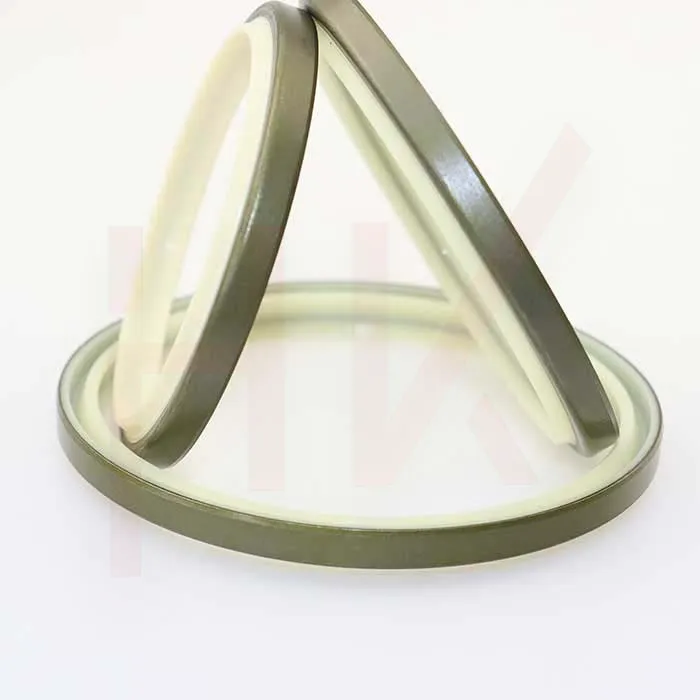Dec . 29, 2024 08:07 Back to list
Understanding Hydraulic Wiper Seals for Improved Machinery Performance and Longevity
Understanding Hydraulic Wiper Seals Functionality and Importance
Hydraulic systems are integral to many industrial machines, vehicles, and equipment, allowing for the controlled movement of heavy loads with remarkable efficiency. One crucial component of these systems is the hydraulic wiper seal, an often overlooked yet vital part responsible for maintaining the integrity and longevity of hydraulic systems. In this article, we will explore the functionality, importance, and maintenance of hydraulic wiper seals.
What is a Hydraulic Wiper Seal?
A hydraulic wiper seal is a device designed to prevent contaminants from entering the hydraulic cylinder while also ensuring that the hydraulic fluid remains within the system. Typically constructed from resilient materials such as polyurethane, rubber, or PTFE, these seals are designed to withstand high pressure, extreme temperatures, and aggressive environmental conditions.
The wiper seal is positioned at the outer end of the hydraulic cylinder, acting as a barrier that wipes away debris and particles that may come into contact with the rod as it moves in and out of the cylinder. This wiping action is crucial, as any contaminants that penetrate the system can lead to wear, damage, and ultimately failure of the hydraulic components.
Functionality of Wiper Seals
Hydraulic wiper seals serve multiple functions, ensuring both the performance and longevity of hydraulic systems
1. Contaminant Exclusion The primary function of the wiper seal is to keep dirt, dust, and moisture out of the hydraulic system. Contaminants can cause premature wear on hydraulic cylinders and increase the risk of leaks, which can result in expensive repairs and downtime.
2. Fluid Retention While the wiper seal is designed to exclude external contaminants, it also helps in retaining hydraulic fluid within the system. This dual functionality ensures that the hydraulic pressure remains consistent for optimal performance.
3. Minimizing Friction Properly designed wiper seals reduce friction between the hydraulic rod and the seal itself. This reduction in friction not only prolongs the life of the wiper but also improves the efficiency of the hydraulic system.
hydraulic wiper seal

4. Temperature Resistance Many hydraulic applications operate under extreme conditions. Wiper seals must be capable of withstanding high temperatures caused by friction and environmental heat, as well as low temperatures that might cause hardening of the material.
5. Dynamic Performance As the hydraulic cylinder operates, the wiper seal must maintain its integrity and functionality while accommodating dynamic movements. This requires flexibility and resilience in the design of the seal.
Importance of Wiper Seals
The importance of hydraulic wiper seals cannot be overstated. A minor failure in the wiper seal can lead to significant issues within the hydraulic system, including
- Increased Maintenance Costs If contaminants are allowed to enter the system, the entire hydraulic system may require more frequent maintenance. Repairs and replacements of damaged components can add substantial costs over time.
- System Inefficiency The presence of debris can cause hydraulic systems to operate inefficiently, leading to increased energy consumption and decreased performance. This can affect the overall productivity of the machinery or vehicle in which they are used.
- Environmental Concerns Hydraulic fluid leaks caused by failed seals can lead to environmental contamination. This not only poses a threat to ecosystems but can also lead to regulatory fines and loss of reputation for companies.
Maintenance and Care
To ensure the longevity and efficiency of hydraulic wiper seals, regular maintenance is crucial. Operators should implement routine inspections to check for signs of wear, damage, or contamination. Cleaning the area around the wiper seal and addressing any sources of contamination can help prolong its life.
In conclusion, hydraulic wiper seals play a vital role in the functionality of hydraulic systems by preventing contamination, retaining fluid, and minimizing friction. Their importance cannot be underestimated, as they directly impact the efficiency, maintenance costs, and environmental safety of hydraulic systems. Investing in quality wiper seals and adhering to a regular maintenance schedule can significantly enhance the performance and longevity of hydraulic machinery.
-
TCN Oil Seal Metal Ring Reinforcement for Heavy Machinery
NewsJul.25,2025
-
Rotary Lip Seal Spring-Loaded Design for High-Speed Applications
NewsJul.25,2025
-
Hydraulic Cylinder Seals Polyurethane Material for High-Impact Jobs
NewsJul.25,2025
-
High Pressure Oil Seal Polyurethane Coating Wear Resistance
NewsJul.25,2025
-
Dust Proof Seal Double Lip Design for Construction Equipment
NewsJul.25,2025
-
Hub Seal Polyurethane Wear Resistance in Agricultural Vehicles
NewsJul.25,2025
-
The Trans-formative Journey of Wheel Hub Oil Seals
NewsJun.06,2025
Products categories
















